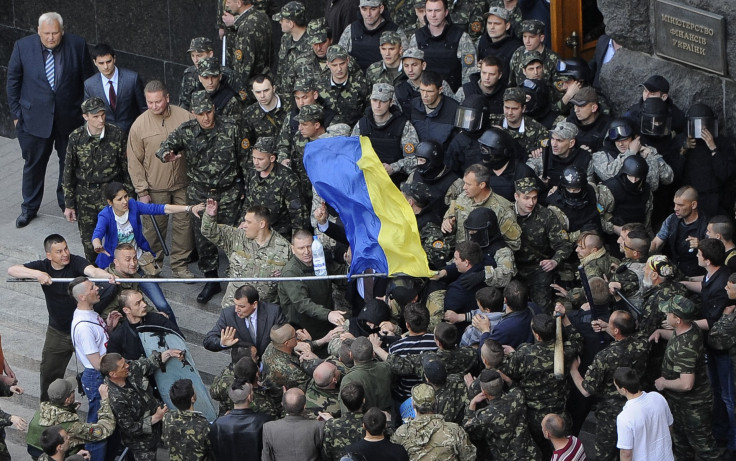Ukraine Prepares To Sign EU Trade Deal That Was At The Center Of The Euromaidan Protests

Ukraine is finally set to sign the trade agreement with the European Union that became the focal point of nationwide protests against pro-Moscow leader and former President Viktor Yanukovych last fall and ultimately led to his ouster, the Associated Press reported Wednesday.
The agreement with the EU, expected to be signed Friday, contains a framework of regulations for Ukraine to follow to reduce corruption and resurrect the debt-ridden economy, AP reported. The EU deal was to be signed by Yanukovych, but he instead made the fateful decision to enter into a bailout agreement with Russia, triggering months of violent protests across the country. The protests led to his ouster in February and eventual flight to Moscow.
The deal will require Ukraine to remove taxes on imports implemented to protect the country’s local manufacturers in order to spur economic growth and bring in more jobs. The EU deal will remove 98 percent of EU tariffs and 99 percent of Ukraine’s tariffs to boost trade. The deal will also require Ukraine to change the way it does business and includes a 10-year plan for Ukraine to adopt EU rules on government contracting as well as in the manufacturing sector.
"The question is the modernization of the whole economy," Volodymyr Sidenko, an economist at the Razumkov Center research institute in Kiev, said. "Without institutional change, all the trade and investment will not be very efficient."
Officials from Moscow told AP that if Ukraine signed the trade pact with the EU, Russia might cancel Ukraine's free-trade privileges and begin charging the latter for importing goods.
“At any moment, the Russian side can introduce technical barriers to the entrance of Ukrainian goods," Viktor Pynzenyk, a member of the Ukrainian parliament's economy committee and a former finance minister, said. Pynzenyk added that Russian free-trade privileges aren't free. "Any thinking politician would expand any trade, including with Russia, but we want to live by rules, not by decisions where it's not clear what's motivating them."
Yanukovych's exit, which triggered secessionist sentiment among pro-Russian segments of Ukraine's population in the country's east and led to Russia's takeover of the Crimean peninsula, also triggered clashes between separatists and government troops across eastern Ukraine. And it's feared that with the signing of the new deal Friday in Brussels by Ukraine's new president, Petro Poroshenko, the clashes, which have turned increasingly violent and led to hundreds of deaths and thousands being displaced, could worsen.
© Copyright IBTimes 2024. All rights reserved.




















